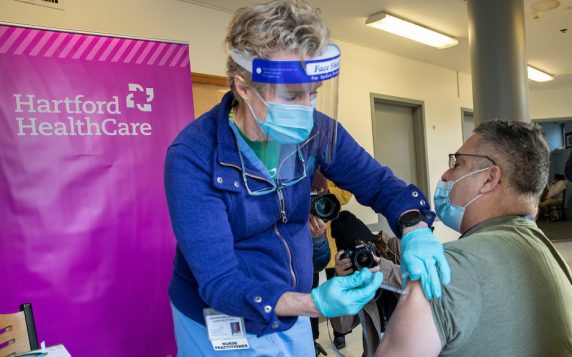Masks work against Omicron, but with cases dropping significantly throughout Connecticut is it actually necessary to wear one?
Not in schools and day care centers starting Feb. 28, Gov. Ned Lamont said today as he ended the state’s school mask mandate in favor of an as-needed determination by each school district. Lamont said the date coincides with the end of winter break.
Some towns require masks inside municipal buildings. Some businesses require masks indoors. Increasingly, it’s becoming a personal choice.
“It all depends on your personal risk assessment at this point,” says Dr. Ulysses Wu, Hartford HealthCare’s System Director of Infection Disease and Chief Epidemiologist. “And that’s for you in particular. But we do have to remember that masking does help prevent the spread of disease to other people. So it is a personal choice with what I always say a societal consequence.”
The type of mask you wear also has a consequence during Omicron, more than four times more transmissible than the Delta variant. A new study by the Centers for Disease Control and Prevention found people who wear N95 or KN95 masks are 83 percent less likely to test positive for COVID-19. (For information on these respirators, click here.)
A standard blue surgical mask makes it 66 percent less likely you’re contract COVID-19. A cloth mask drops the probability to 56 percent less likely.
"We do know that masking works," said Dr. Wu. "That's from a science standpoint. But when it comes to a decision such as making masks mandatory or not, we do know that science does not exist in a vacuum. There are much smarter people than I that need to make that decision."
In Connecticut, city and town leaders determine masking requirements in public spaces regardless of a person's vaccination status. Hartford dropped its mask mandate a week ago, though acknowledged some businesses would continue to require masks. New Haven and Bridgeport still require masking indoors.
All healthcare facilities require masks.



